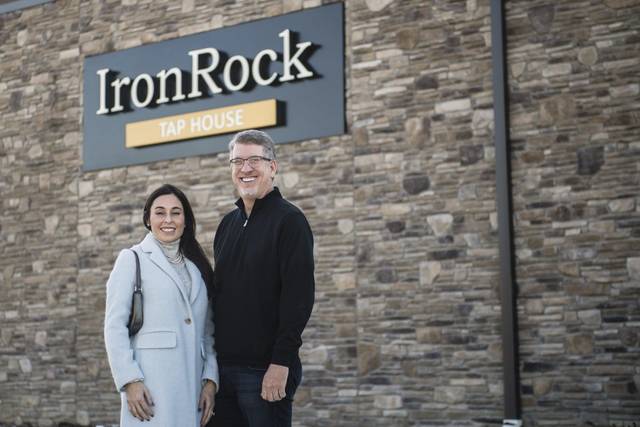https://staging.triblive.com/local/regional/struggling-restaurant-owners-tell-pa-lawmakers-were-limping-along-here/
Struggling restaurant owners tell Pa. lawmakers: ‘We’re limping along here’

With a $20,000 monthly mortgage payment, the owner of a Hempfield brewpub told state legislators his business is barely breaking even under a state-mandated 25% customer capacity order.
“We’re limping along here, and we need help,” said Greg Cammerata, owner of IronRock Tap House.
Cammerata and IronRock executive chef Arnold Ivey were among those who spoke Tuesday during a four-hour hearing of the state House Republican Policy committee in Harrisburg.
GOP legislators heard about the devastating effects the capacity limit is having on the restaurant industry. House Democrats sent a letter to Gov. Tom Wolf asking the capacity limit be raised to 50%, the initial restriction imposed to halt the spread of covid-19 during the coronavirus pandemic.
Among the Democrats to sign the letter was Rep. Joe Petrarca of Washington Township.
“It is unfair, however, to crack down uniformly on all restaurants and taverns, in all areas of the state,” the letter says in part.
Cammerata and Ivey detailed the panic and confusion they faced when an employee tested positive for covid-19 six weeks ago.
“We have no problem following guidelines,” Ivey said.
RELATED: To watch a recording of the hearing, click HERE.
But state contact tracers gave conflicting information to the restaurant’s employees who may have been exposed, Ivey said. There were also no clear-cut guidelines for when the restaurant should close, for how long and what procedures should be followed before it reopened.
Co-workers who may have been exposed to the virus were told to self-quarantine, and some were threatened with incarceration or a forced quarantine in a letter sent to them by contact tracers, Cammerata said.
IronRock closed June 17 for two weeks as a precaution, but wouldn’t have been able to operate regardless because all of its about 75 employees were following orders to quarantine, Cammerata said.
IronRock reopened June 29, but was then forced to abide by stricter orders issued by Gov. Tom Wolf on July 15 that limited indoor capacity to 25% and banned alcohol without food orders.
The new limits were an attempt to halt a July surge in covid-19 cases that was attributed to people returning to restaurants and bars after June 5, when the region entered the green phase of the state’s reopening plan.
Secretary of Health Rachel Levine submitted written testimony with data showing the spike in cases connected to bars.
“Current guidance from the Centers for Disease Control and Prevention (CDC) also supports these measures,” Levine wrote.
The 25% indoor capacity limits make it impossible for businesses like IronRock to make enough money to remain open, two industry leaders said.
It’s creating what Pennsylvania Restaurant and Lodging Association President John Longstreet called a “disaster of epic proportions” that could mean the loss of tens of thousands of jobs in the state.
There’s no scientific basis for how the 25% limit was decided upon, Longstreet said, and the limit makes businesses in the industry unsustainable.
“We’ve got to try to find every method we can to get these restaurants to the other side,” Longstreet said.
The limits hurt business owners who went to the expense of spacing out tables, installing plexiglass and printing one-use menus to prevent the spread of the virus, according to Chuck Moran, executive director of the Pennsylvania Licensed Beverage and Tavern Association.
“They’ve invested a lot of money to follow the rules, then get hit by a torpedo,” Moran said.
The industry as a whole shouldn’t be hamstrung by these scofflaws, Moran said.
“It was basically a shotgun approach and there was a lot of collateral damage,” Moran said.
The trade groups are optimistic measures that would waive licensing fees for this year and next will have support in the legislature, Moran said.
The House Policy Committee, led by Rep. Martin Causer, R-McKean County, took the testimony given Tuesday to heart, he said.
“We need to make sure these businesses can continue to operate and operate safely,” Causer said.
The message from bar and restaurant owners, according to Causer, was: “Let us do what we do and let us do it safely.”
The Wolf administration didn’t participate in the hearing. Wolf spokeswoman Lyndsay Kensinger asked legislators to support lobbying federal leaders to pass the RESTAURANTS Act, a bill that would prove $120 billion in aid to help independent restaurants make it through the pandemic.
“The federal bill provides grants to cover the difference between revenues from 2019 and projected revenues through 2020, with a maximum grant of $10 million,” Kensinger said.
A bailout isn’t what the business owners are asking for, Causer said.
“They really don’t want that. They want to be open and succeed on their own,” he said.
Copyright ©2026— Trib Total Media, LLC (TribLIVE.com)
